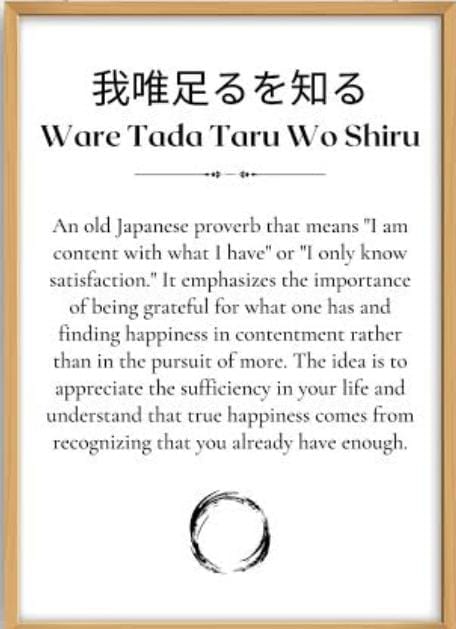28th November 2024
On a 17th-century tsukubai (water basin) stone at the Ryoanji Temple in Kyoto, there’s an ancient inscription where four Chinese characters are written on the stone.
Read alone, these characters are of no significance. But when combined with the borders of the central square, they can be read as “ware tada taru wo shiru,” which means
“I only know plenty,” or
“I only know contentment.”
I only know contentment.
Isn’t that so powerful?
To be content with the emotion of anger just as how you are usually content with the emotion of excitement.
To be content with the state of sadness just as how you are incredibly content with the state of happiness.
But how about a more poetic translation to that inscription?
How about, “rich is the person who is content with who he is or what he has.”
Or, how about this: “What I have is all I need.”
You see, the root of all unhappiness is born from being discontent with where you are and what you have.
It really is as simple as that.
This reminds me of a parable on contentment,
I love sharing:
Two close boyhood friends grow up and go their separate ways. One becomes a humble monk, the other a rich and powerful minister to the king.
Years later they meet up again.
As they catch up, the minister in his fine robes, takes pity on the thin, shabby monk.
Seeking to help, he says: “You know, if you could learn to cater to the king you wouldn’t have to live on rice and beans.”
To which the monk replies: “If you could learn to live on rice and beans you wouldn’t have to cater to the king!”
Be content with what you have,
Be grateful for this wonderful life & stay blessed forever.

